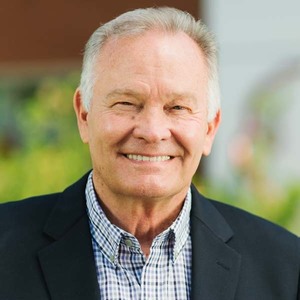My Dodge Dakota is 17 years old. I love my truck. I ordered it with all the goodies, including a six-way adjustable power seat. Aside from the throaty V-8 under the hood, it’s one of the features I most appreciate. How wonderful to settle in for a drive with my back comfortable, legs properly positioned, and visibility at its best! Yes, adjustable seating is a great blessing.
Yet, adjustment has at its core the notion of change. And change is something most of us instinctively resist. Toddlers like to play with the same toys in the nursery week after week. Teenagers wish their bodies wouldn’t go through all those weird changes. Mid-lifers wish their bodies wouldn’t go through all those weird changes! And of course, my body is way past warranty, and change is becoming my constant and irritating companion.
Stability is a good thing – knowing that your favorite chair won’t collapse when you plop down in it after a hard day – being able to count on the love of someone no matter what. But as followers of Jesus Christ, we need to be willing to adjust with the changes that come with such a commitment. The first disciples were so inclined, and because of it, we have the gospel, are born-again, and look forward to an eternity in the presence of our loving Father.
Look at some of the changes the early disciples had to adjust to as they followed Jesus:
- A change of careers – When Matthew left his tax business, his family must have been vexed, sort of like my folks would have reacted if I had run off to join the circus.
- Having a known tax collector as a colleague in ministry – The other 11 disciples couldn’t have found commiserating with Matthew very comfortable at first, since the Roman IRS was reviled by pretty much everyone in those days.
- Taking advice from a carpenter on how to fish – Being raised by a dad who loved to fish, but had his own methods, thank-you-very-much, I can imagine Peter, James and John giving each other puzzled looks when Jesus suggested casting the net on the other side of the boat. To me, part of that amazing miracle is that they listened to him (Luke 5)!
- A healer who didn’t heal everyone – After Jesus healed Peter’s mother-in-law, along with many others, he left town and couldn’t be found. The disciples had to be a bit perplexed when, upon being located, he said ‘Let us go somewhere else to the towns nearby . . . ‘ (Mark 1:37, 38). But Lord, things were going so great in Capernaum!
- Treating outsiders with dignity and respect – Watching Jesus lovingly deal with a woman of questionable character, and a Samaritan no less, had to be an eye opener for the twelve. This was not the custom of devoted Israelites, for sure (John 4).
- Working on the Sabbath – The disciples were accustomed to the rigid man-made rules regarding Sabbath observance. Imagine the rush they felt when Jesus healed a man – in the synagogue – on the seventh day (Mark 3)!
- Having their champion call powerful and respected religious leaders ‘whitewashed tombs and broods of vipers’ – While some of Jesus’ entourage may have broken into a grin, you have to believe they were uncomfortable with his comments to these nationally revered men. Talk about an unproductive way to make friends in high places! The disciples had to adjust to focusing on the heart of a person, not one’s pedigree or record of keeping tradition (Matthew 23).
- Seeing their leader betrayed and crucified – It was obvious the twelve did not see this coming, as the later chapters of the gospels clearly demonstrate. Their hope for a leader who would end the cursed Roman rule would have to adjust to seeing as their true hope the forgiveness of sin through the death and resurrection of their beloved Jesus.
As the church emerged under the leadership of the apostles, they continued to adjust to more new realities:
- Receiving the gift of the Holy Spirit – A dynamic new presence in the lives of believers is unveiled (Acts 2).
- Meeting secretly in homes – Pushback and persecution will be a regular feature of the lives of believers, and at the hands of the religious authorities, no less (Acts 4 & 12)!
- Having a mortal enemy become a main spokesman for the gospel – They have to get used to the fact that God can and will save anyone, even Saul of Tarsus. And not only that, they will see people of all ethnicities and nationalities come to faith in the risen Christ (Acts 28:28).
- Sharing Christ at riverbanks and in theaters – The creative use of opportunities to share the good news will become a hallmark of these called-out men.
- Being run out of theaters, towns, beaten and shipwrecked – oh yes, and martyred – The stories of each one of these men will differ, and be filled with changes and challenges that help define the history of the church.
Personally, I’m grateful those first followers were flexible - men and women of faith who embraced the challenge of the Savior and went into the entire world, preaching the good news of Jesus Christ. I’m a believer through their faithfulness. I’m deeply indebted to my ancestors who kept and carried the faith through times in world history that could easily have extinguished the light of the gospel by which I walk.
As believers, we live in a kind of paradox – we serve a Savior who keeps challenging us to roll with the punches, adjust to the changes, but whose essence, character and message will never change. As the author of Hebrews penned to those Jewish Christians fighting the urge to go back to their old patterns of belief, we must ‘Remember those who led you, who spoke the word of God to you, and considering the result of their conduct, imitate their faith. Jesus Christ is the same yesterday and today, yes and forever’ (13:7, 8).
God bless you all in your journey of obedience and service to our loving Lord. May he give us wisdom, courage, understanding, and love as we adjust to things that do change in order to bring to the world the Good News, which does not.
 Biola University
Biola University



